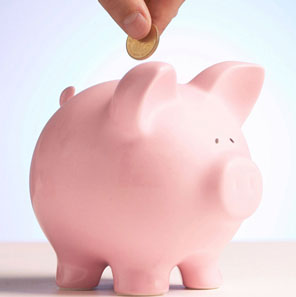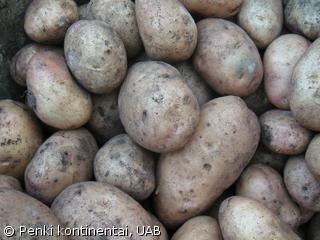Infrastructure is lacking despite economic growth in largest of nations about to join European Union
Published:
29 March 2004 y., Monday
Just weeks before Poland joins the European Union on May 1, Warsaw struts a new prosperity. But all is not what it seems: Despite strong economic growth driven by exports, the country faces high unemployment, political uncertainty and deeply rooted corruption.
Paradoxes abound. Those who can afford new Volvos or BMWs must still drive them along potholed roads. The hip cafes that draw fashionable young people are often housed in drab Stalinist-era concrete block buildings.
And many of the luxury goods for sale in the bright new shops and malls remain off-limits to many in Poland, where only 1 percent earn above $18,000 a year.
Such contrasts exist in all eight former communist states due to join the EU, but the stakes are highest in Poland, the largest of the new countries.
With more than 38 million people, Poland accounts for 52 percent of the new EU citizens. Poles will be 8.4 percent of the union’s population, so its economy performance will have a major impact on the rest of the bloc, the world’s largest economic union.
Analysts say that Poland’s greatest economic strength is the many modern, efficient companies that have made the transition and are already selling successfully to EU countries.
Ten years ago, Polish exports consisted mostly of raw products like coal, sulfur, apples and meat. Today, exports also include higher-value goods like precision surgical instruments, pharmaceuticals and car engines.
Šaltinis:
detnews.com
Copying, publishing, announcing any information from the News.lt portal without written permission of News.lt editorial office is prohibited.
The most popular articles
 The future of Europe's troubled car market and 12 million jobs was under scrutiny Tuesday.
more »
The future of Europe's troubled car market and 12 million jobs was under scrutiny Tuesday.
more »
 Europe must take the lead in finding solutions to the global crisis at next week's G20 summit, British prime minister Gordon Brown told MEPs in a speech in Strasbourg on Tuesday that was warmly welcomed by leaders of the main political groups.
more »
Europe must take the lead in finding solutions to the global crisis at next week's G20 summit, British prime minister Gordon Brown told MEPs in a speech in Strasbourg on Tuesday that was warmly welcomed by leaders of the main political groups.
more »
 The US and Europe are in the worst economic crisis since the 1930s. With unemployment rising dramatically and businesses failing, fear is spreading.
more »
The US and Europe are in the worst economic crisis since the 1930s. With unemployment rising dramatically and businesses failing, fear is spreading.
more »
 Monday evening sees MEPs consider the emotive subject of food prices in Europe.
more »
Monday evening sees MEPs consider the emotive subject of food prices in Europe.
more »
 Shares in Wincor Nixdorf AG have fallen 3.5 percent and the ATM company says it is preparing to cut production hours.
more »
Shares in Wincor Nixdorf AG have fallen 3.5 percent and the ATM company says it is preparing to cut production hours.
more »
 Leaders agreed to use €5bn in unspent EU funds to upgrade energy and internet connections. And they raised the ceiling on EU aid to countries having difficulties.
more »
Leaders agreed to use €5bn in unspent EU funds to upgrade energy and internet connections. And they raised the ceiling on EU aid to countries having difficulties.
more »
 Charges on heavy-goods vehicles should be based in part on the air and noise pollution they produce, according to legislation approved by the European Parliament today.
more »
Charges on heavy-goods vehicles should be based in part on the air and noise pollution they produce, according to legislation approved by the European Parliament today.
more »
 EU agriculture officials are about to get a reality check. Starting next year, their on-the-job training will include a stint on a working farm.
more »
EU agriculture officials are about to get a reality check. Starting next year, their on-the-job training will include a stint on a working farm.
more »
 Privatisation, balanced budgets, low public deficits, and free trade have long been the mantra for prudent economic management.
more »
Privatisation, balanced budgets, low public deficits, and free trade have long been the mantra for prudent economic management.
more »
 Building roads and pipelines, ensuring food safety, improving education, fighting discrimination and boosting jobs are all funded from the EU budget.
more »
Building roads and pipelines, ensuring food safety, improving education, fighting discrimination and boosting jobs are all funded from the EU budget.
more »